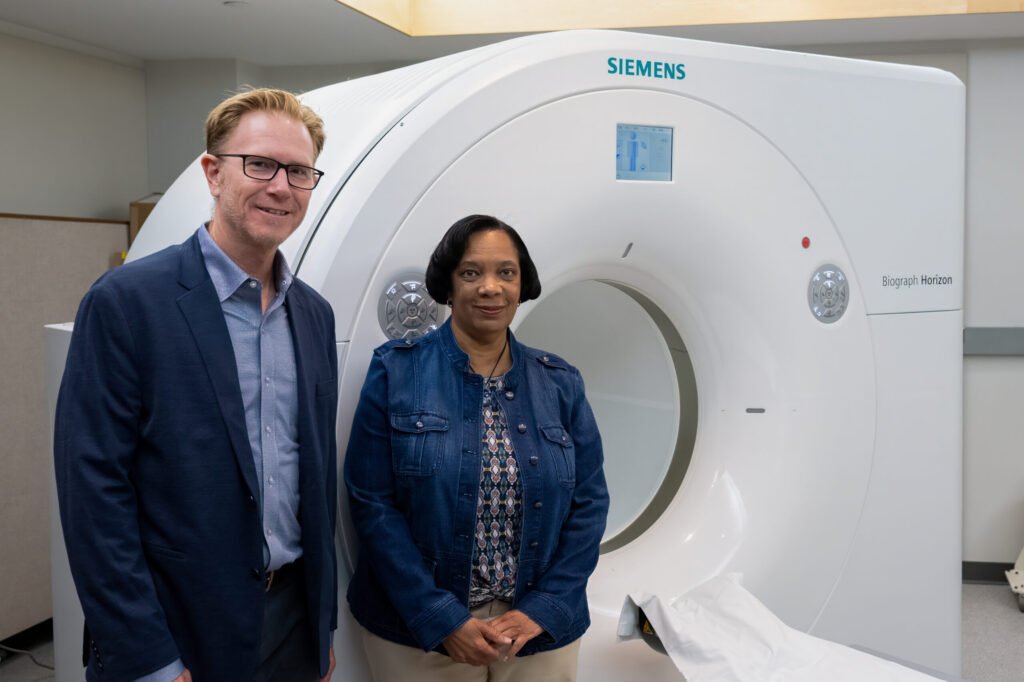Researchers at the University of Wisconsin-Madison have completed the first brain scans in an unprecedented study of Alzheimer’s disease.
This national research project is working to collect comprehensive brain images and blood-based biomarkers from 2,000 participants across the country.
The data collected from individuals twice over three years will allow researchers to track the biological signs of Alzheimer’s disease and better understand the disease. Scientists also hope this study will improve understanding of other types of cognitive impairment and dementia in older adults.
Get the latest news
Sign up for WPR’s email newsletter.
The research is a collaboration of 37 Alzheimer’s disease research centers across the country and received a $150 million grant from the National Institutes of Health earlier this year. A research center at the University of Wisconsin-Madison School of Medicine and Public Health has been selected to conduct the first series of brain scans starting in August.
Barbara Smith Bullen, of Madison, was one of the first to participate. She said her father was diagnosed with dementia in the years before his death, and some of her closest friends had similar experiences after someone in their family was diagnosed with Alzheimer’s disease.
Smith Ballen admits she doesn’t like having blood drawn or going to the hospital, but said she hopes the research will lead to improved diagnosis and treatment.
“I’m very motivated and compassionate about this particular disease and really trying to help the researchers who seem very passionate about finding results,” she said.
UW-Madison’s Barbara Smith Bullen (right) and UW-Madison professor Sterling Johnson. Smith Ballen was one of the first participants in a national study on Alzheimer’s disease. (Photo provided by UW-Madison)
Ojioma Okonkwo, a professor at the University of Wisconsin-Madison who is helping lead the project, said he continues to see strong public interest in Alzheimer’s disease research.
“Some of them may not have a loved one with Alzheimer’s disease right now,” Okonkwo says. “We need both types of individuals in our research to drill down and uncover some of the earliest signals that could be detected in the brain, blood, and spinal fluid of these two types of individuals.”
Okonkwo’s focus for the project is to collect better data on biological markers of Alzheimer’s disease in Blacks and Latinos, who are twice as likely to suffer from some forms of dementia. . She said participants in past research studies have been primarily white, and scientists have found that the findings do not necessarily apply to people of other races or ethnicities.
As an example, he points to the well-established finding that amyloid plaque buildup in the brain is the cause of Alzheimer’s disease. Okonkwo said more recent studies have found that black and Latino patients do not necessarily have higher amounts of amyloid plaques when they develop Alzheimer’s disease.
“That’s why it’s so important in studies of this size to enroll a sufficiently large subset of underrepresented people,” he says. “Why are these minority groups more likely to be diagnosed with Alzheimer’s disease and other types of dementia in the clinic, but their brains don’t necessarily have a greater burden of the disease itself?”
The project is dedicated to recruiting at least 25 percent of patients from communities that have historically been underrepresented in research.
Smith-Barren, who is Black, said she was glad representation was a priority in the piece. She hopes to encourage other people of color to participate in this study.
“Without their participation, there would not be as much input from people of color to continue to participate in these studies and therefore continue to help prevent and treat this devastating disease,” she said. Ta.
Wisconsin Public Radio, © Copyright 2024, University of Wisconsin System Board of Governors and Wisconsin Educational Communications Commission.

